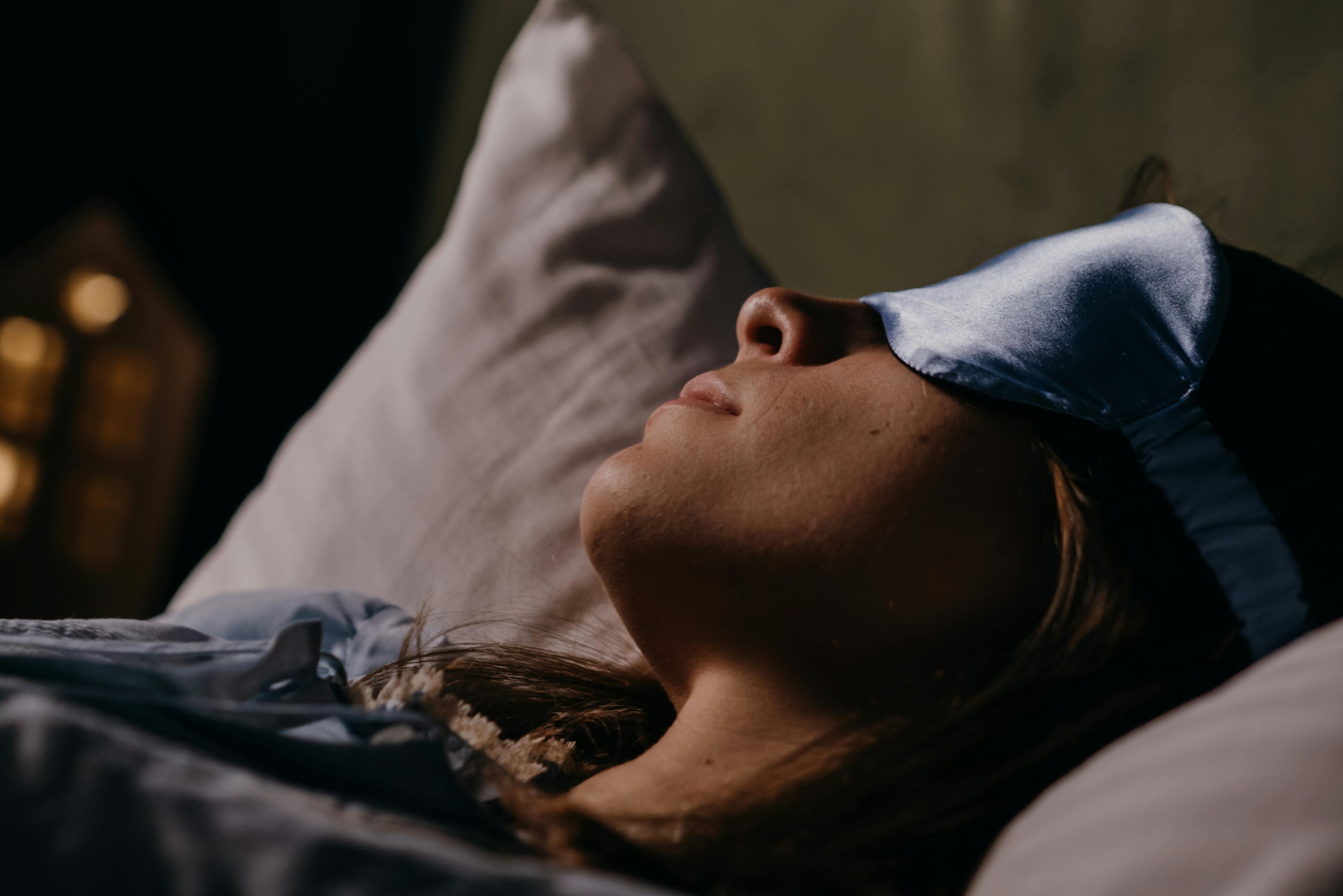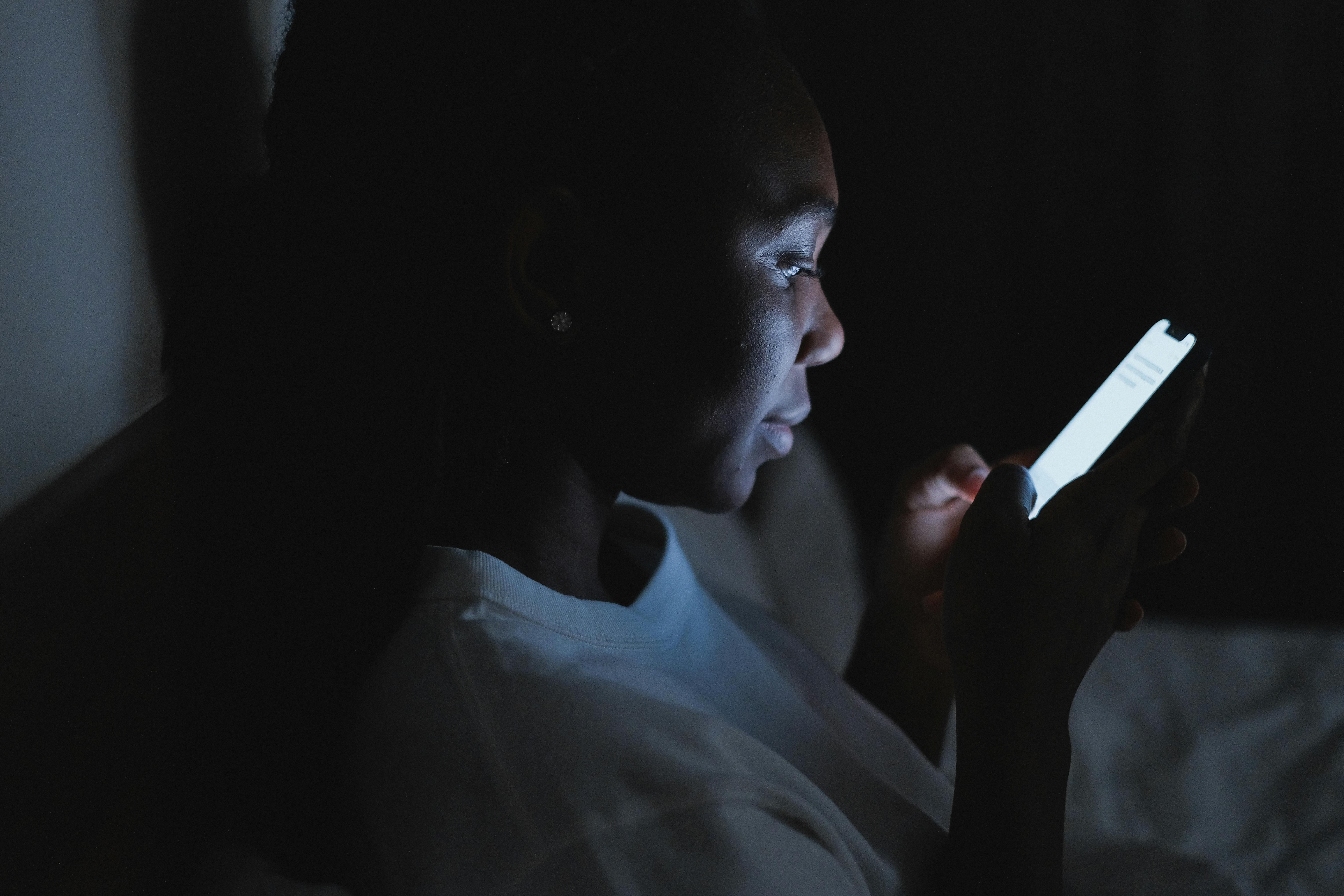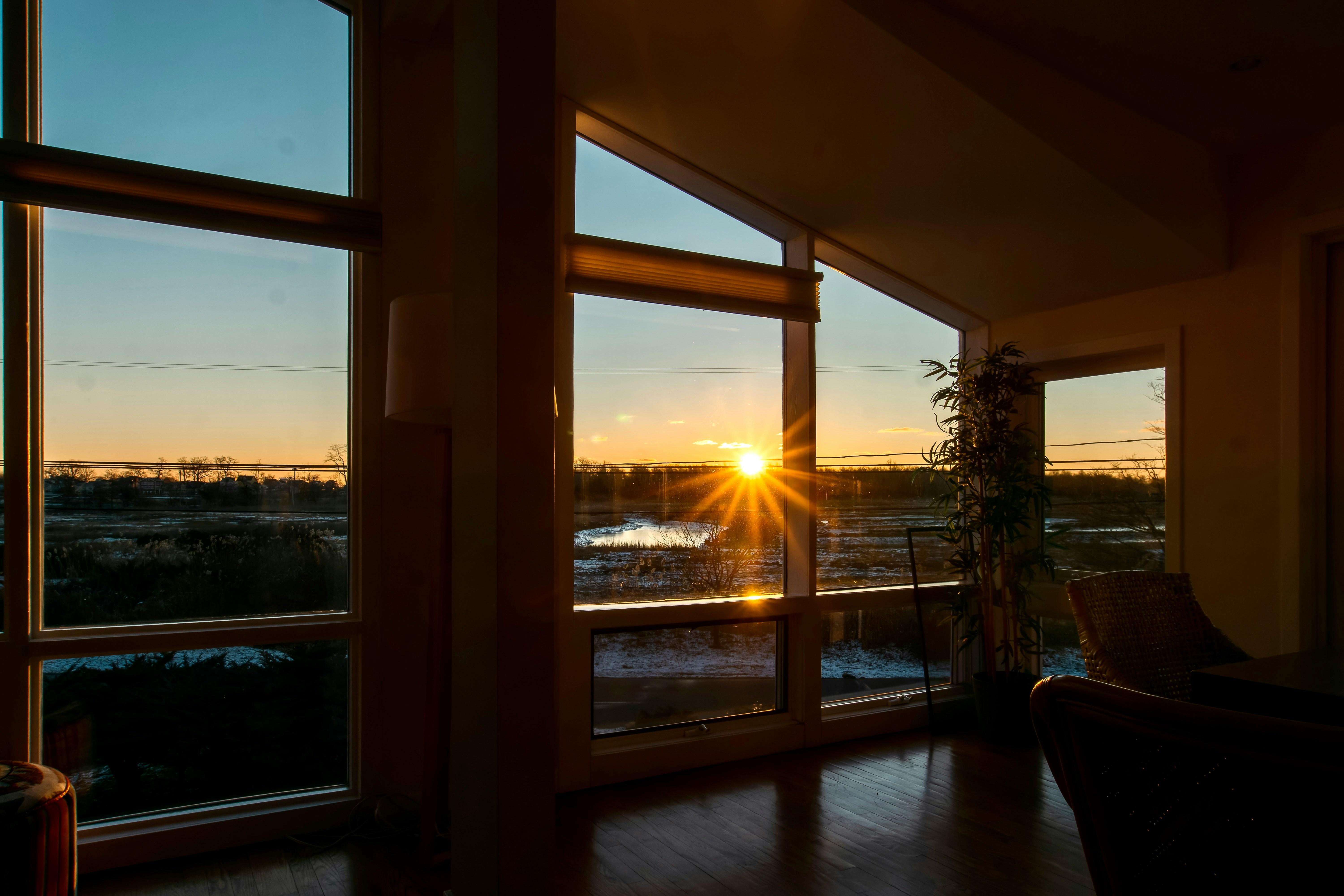10 Essential Sleep Hygiene Tips for Better Sleep Quality
Learn the fundamental sleep hygiene practices that can dramatically improve your sleep quality. From bedtime routines to environment optimization, discover science-backed strategies for better sleep.

10 Essential Sleep Hygiene Tips for Better Sleep Quality
You've been doing bedtime all wrong – and it's time to fix that.
If you're reading this at 2 AM after another night of tossing and turning, you're not alone. Millions of people struggle with sleep, but here's the surprising truth: most sleep problems aren't caused by mysterious medical conditions or expensive mattresses. They're caused by simple habits that sabotage your sleep without you even realizing it.
Sleep hygiene refers to the habits and practices that promote good sleep quality and daytime alertness. Poor sleep hygiene is one of the most common causes of sleep problems, but here's the good news – it's also one of the easiest to fix. The changes you'll learn about today could transform your nights and revolutionize your days.
What is Sleep Hygiene Really?
 Think of sleep hygiene as the art and science of creating the perfect conditions for sleep. It encompasses everything from your daily routine to your bedroom environment, and even the thoughts running through your mind as you hit the pillow. Sleep hygiene isn't just about what you do in the hour before bed – it's about how your entire day sets you up for success or failure when night falls.
Think of sleep hygiene as the art and science of creating the perfect conditions for sleep. It encompasses everything from your daily routine to your bedroom environment, and even the thoughts running through your mind as you hit the pillow. Sleep hygiene isn't just about what you do in the hour before bed – it's about how your entire day sets you up for success or failure when night falls.
Your body is incredibly smart. It's constantly receiving signals about whether it's time to be alert or time to rest. The problem is, modern life sends mixed signals. We're exposed to bright lights late at night, we consume caffeine at all hours, and we treat our bedrooms like entertainment centers rather than sleep sanctuaries. Sleep hygiene is about getting these signals right.
The 10 Essential Sleep Hygiene Tips That Will Change Your Life
1. Maintain a Consistent Sleep Schedule: Your Body's Best Friend
Your body has an internal clock called the circadian rhythm that regulates your sleep-wake cycle. This biological timekeeper is incredibly powerful – when it's working with you, falling asleep feels effortless. When it's working against you, even the most comfortable bed feels like a battleground.
The secret to harnessing this internal clock is consistency. Go to bed and wake up at the same time every day, even on weekends. Yes, even on weekends. This might sound like torture to your social life, but here's what happens when you stick to a schedule: your body starts producing melatonin automatically at the right time, your core body temperature drops when it should, and you begin feeling naturally sleepy when bedtime approaches.
Aim for 7-9 hours of sleep per night for adults, and avoid sleeping in more than one hour on weekends. The temptation to "catch up" on sleep over the weekend is strong, but it actually works against you by confusing your circadian rhythm. Be patient with yourself – it may take a few weeks to establish a new schedule, but the payoff is enormous.
2. Create a Relaxing Bedtime Routine: Your Personal Sleep Ritual
A consistent pre-sleep routine is like sending a memo to your nervous system that says "it's time to power down." This routine becomes a powerful psychological trigger that prepares your mind and body for sleep.
Start your routine 30-60 minutes before your target bedtime. Choose calming activities that you genuinely enjoy – reading, gentle stretching, meditation, or even a warm bath. The key is to avoid stimulating activities like work, intense exercise, or exciting TV shows that can trigger alertness when you want the opposite.
Your routine doesn't need to be elaborate or time-consuming. Some people find that simply washing their face, brushing their teeth, and spending five minutes writing in a gratitude journal is enough to signal bedtime. Others need longer routines with multiple calming activities. The most important thing is consistency – keep the routine the same every night so your body learns to recognize the pattern.
3. Optimize Your Sleep Environment: Transform Your Bedroom into a Sleep Sanctuary
Your bedroom should be a cave – cool, dark, and quiet. This isn't just about comfort; it's about biology. Your body temperature naturally drops as you fall asleep, so a cool room (around 65-67°F or 18-19°C) actually helps this process along.
Darkness is crucial because light suppresses melatonin production. Even small amounts of light from electronic devices or streetlights can interfere with your sleep. Invest in blackout curtains or an eye mask, and consider covering any LED lights on electronics in your bedroom.
Noise can be tricky because some people need complete silence while others sleep better with consistent background noise. If you're sensitive to sound, earplugs or a white noise machine can be game-changers. The goal is to eliminate sudden, jarring noises that can wake you up or prevent you from falling asleep.
Don't underestimate the importance of comfort. Your mattress and pillows should support your body in a way that doesn't cause pain or discomfort. If you wake up with aches and pains, it might be time to evaluate your sleep setup. Finally, keep your bedroom clean and tidy – a cluttered room can create a cluttered mind that's resistant to sleep.
4. Limit Exposure to Blue Light: Give Your Brain Permission to Sleep
 Blue light from screens is one of the most pervasive sleep disruptors in modern life. This type of light tricks your brain into thinking it's daytime, suppressing melatonin production and keeping you alert when you should be winding down.
Blue light from screens is one of the most pervasive sleep disruptors in modern life. This type of light tricks your brain into thinking it's daytime, suppressing melatonin production and keeping you alert when you should be winding down.
The ideal approach is to avoid screens entirely for 1-2 hours before bed. If this seems impossible given your lifestyle, start with smaller changes. Use blue light filters on your devices, dim the brightness significantly, and consider switching to activities that don't involve screens – like reading a physical book instead of an e-reader.
Many smartphones and computers now have built-in blue light filters that automatically adjust based on the time of day. Take advantage of these features, and consider installing apps that reduce blue light emission even further during evening hours.
5. Watch What You Eat and Drink: Fuel Your Sleep, Don't Fight It
Your diet plays a much bigger role in sleep quality than most people realize. What you eat and drink, and when you consume it, can either support or sabotage your sleep.
Avoid large meals 2-3 hours before bed because digestion can interfere with sleep. Your body temperature rises during digestion, which works against the natural cooling process that helps you fall asleep. If you're hungry close to bedtime, choose a light snack that won't cause digestive drama – something like a banana, a small handful of nuts, or a piece of toast.
Caffeine is a sleep killer, but its effects last much longer than most people realize. Limit caffeine after 2 PM, and remember that it's not just in coffee – tea, chocolate, and some medications also contain caffeine. Everyone metabolizes caffeine differently, so pay attention to how it affects you personally.
Alcohol is particularly tricky because it can help you fall asleep initially, but it disrupts sleep quality later in the night. It reduces REM sleep and can cause you to wake up frequently. If you choose to drink alcohol, try to finish at least 2-3 hours before bedtime.
Stay hydrated during the day, but reduce fluid intake 1-2 hours before bed to minimize nighttime bathroom trips that can disrupt your sleep cycles.
6. Exercise Regularly (But Not Too Close to Bedtime): Tire Your Body, Not Your Mind
Regular exercise is one of the most powerful sleep aids available, but timing is everything. Exercise increases your heart rate, raises your body temperature, and releases stimulating hormones – all of which can keep you awake if they occur too close to bedtime.
Aim for at least 30 minutes of moderate exercise most days of the week, but avoid intense exercise 2-3 hours before bed. Morning or afternoon workouts are ideal for sleep because they help regulate your circadian rhythm and reduce stress hormones that can interfere with sleep.
If you prefer evening exercise, focus on gentle activities like yoga, stretching, or a leisurely walk. These can actually promote better sleep by helping you relax and unwind from the day's stresses.
7. Manage Stress and Anxiety: Quiet the Mental Chatter
Stress is perhaps the biggest sleep thief of all. When your mind is racing with worries, to-do lists, or replaying the day's events, falling asleep becomes nearly impossible. The key is to address stress before it follows you into bed.
Practice relaxation techniques like deep breathing, progressive muscle relaxation, or meditation. These don't have to be elaborate – even five minutes of focused breathing can help calm your nervous system. Many people find that meditation apps provide helpful guidance for beginners.
One incredibly effective technique is the "worry dump" – keep a notebook by your bed and write down anything that's bothering you before you try to sleep. This simple act of getting worries out of your head and onto paper can provide immediate relief.
Try the 4-7-8 breathing technique: inhale for 4 counts, hold for 7 counts, exhale for 8 counts. This pattern activates your parasympathetic nervous system, which promotes relaxation and sleepiness.
If stress and anxiety are persistent problems, consider talking to a therapist or counselor. Professional help can provide you with tools and strategies that go beyond basic sleep hygiene.
8. Use Your Bed Only for Sleep: Train Your Brain
 Your bed should be associated with sleep, not wakefulness. When you work, eat, or watch TV in bed, you're training your brain to see your bed as a place for alertness rather than rest. This can make it much harder to fall asleep when you actually want to.
Your bed should be associated with sleep, not wakefulness. When you work, eat, or watch TV in bed, you're training your brain to see your bed as a place for alertness rather than rest. This can make it much harder to fall asleep when you actually want to.
If you can't sleep after 20 minutes, get up and do something relaxing in another room. Only return to bed when you feel sleepy. This might seem counterintuitive, but it prevents your bed from becoming associated with frustration and wakefulness.
Keep a consistent wake time even if you had trouble sleeping the night before. This helps maintain your circadian rhythm and prevents the temptation to sleep in, which can make the next night's sleep even more difficult.
9. Be Smart About Naps: Strategic Rest, Not Sleep Sabotage
Naps can be wonderful for catching up on sleep debt, but they can also interfere with nighttime sleep if not done strategically. The key is timing and duration.
Keep naps short – 20-30 minutes is ideal. This allows you to get some rest without entering deep sleep phases that can leave you feeling groggy. Take naps early in the afternoon, before 3 PM, to avoid interfering with your nighttime sleep drive.
If you have trouble falling asleep at night, you might need to avoid naps entirely until your nighttime sleep improves. Use naps strategically to catch up on sleep debt, but don't let them become a crutch that prevents you from addressing underlying sleep issues.
10. Monitor Your Sleep Environment: Become Your Own Sleep Detective
Pay attention to factors that affect your sleep quality. Keep a sleep diary or use a sleep tracking app to identify patterns and triggers. Note what helps or hurts your sleep – this might include weather changes, stress levels, diet, exercise, or even the books you read before bed.
Track your sleep for at least a few weeks to identify patterns. You might discover that you sleep better on days when you exercise in the morning, or that certain foods affect your sleep quality. This information is incredibly valuable for fine-tuning your sleep hygiene routine.
Be patient with yourself – changes take time to show results. Your body needs time to adjust to new routines and habits. Don't get discouraged if you don't see immediate improvements.
Creating Your Personalized Sleep Hygiene Plan
Week 1: Foundation Building
Start with the basics – establish a consistent sleep schedule and create a relaxing bedtime routine. Focus on optimizing your sleep environment by making your bedroom cooler, darker, and quieter. These foundational changes will set you up for success with the other tips.
Week 2: Digital Detox
Implement strategies to limit screen time before bed. Set up blue light filters on your devices and try reading a physical book instead of scrolling through your phone. This week is about breaking the habit of stimulating activities before bedtime.
Week 3: Lifestyle Adjustments
Adjust your diet and exercise timing based on what you've learned about their effects on sleep. Practice stress management techniques and start tracking your sleep patterns to identify what works best for you.
Week 4: Fine-tuning
Evaluate what's working and what isn't. Make adjustments based on your observations and establish long-term habits that you can maintain consistently. This is about creating a sustainable routine that fits your lifestyle.
Common Sleep Hygiene Mistakes That Sabotage Your Rest
The Weekend Sleep-In Trap
Sleeping in on weekends might feel good in the moment, but it wreaks havoc on your circadian rhythm. Varying your bedtime by more than an hour or not accounting for travel and schedule changes can undo weeks of progress in establishing good sleep patterns.
The Bedroom Entertainment Center
Turning your bedroom into a multi-purpose entertainment and work space confuses your brain about what this space is for. When your bed is associated with alertness and stimulation, it becomes much harder to fall asleep when you actually want to rest.
The Pre-Sleep Adrenaline Rush
Working, studying, or consuming exciting content right before bed is like stepping on the gas pedal when you want to brake. Intense exercise close to bedtime can also trigger alertness when you want the opposite effect.
Ignoring Your Body's Wisdom
Fighting sleepiness to finish tasks, using caffeine to stay awake when you should be winding down, or not listening to your body's natural signals all work against your sleep system. Your body is constantly giving you information about when it's ready for rest – learning to listen to these signals is crucial.
When to Seek Professional Help
While good sleep hygiene can solve many sleep problems, some issues require professional intervention. Consider seeing a sleep specialist if you experience persistent insomnia despite good sleep hygiene, excessive daytime sleepiness, loud snoring or breathing pauses during sleep, unusual movements during sleep, or sleep problems that significantly affect your daily life.
Don't wait months or years to seek help if your sleep problems are severe or persistent. A sleep specialist can identify underlying issues that might be contributing to your sleep difficulties and provide targeted treatments that go beyond basic sleep hygiene.
The Science Behind Sleep Hygiene
Research consistently shows that sleep hygiene practices can improve sleep quality by 30-40%, reduce the time it takes to fall asleep by 15-20 minutes, increase total sleep time by 30-60 minutes, improve daytime alertness and cognitive function, and reduce symptoms of various sleep disorders.
These aren't just minor improvements – they're life-changing benefits that can affect everything from your mood and productivity to your immune system and long-term health. The science is clear: good sleep hygiene works.
Your Journey to Better Sleep Starts Tonight
Good sleep hygiene is the foundation of healthy sleep, but it's not a one-size-fits-all solution. What works for one person may not work for another, and that's perfectly normal. The key is to experiment with these strategies, track your results, and create a personalized routine that works for your lifestyle and needs.
Start small – don't try to implement all 10 tips at once. Choose one or two that resonate with you and gradually build your sleep hygiene routine. With consistency and patience, you'll be amazed at how much better you can sleep and how much better you can feel.
Remember, good sleep isn't a luxury – it's a necessity. It's the foundation upon which your physical health, mental well-being, and overall quality of life are built. By investing in your sleep hygiene today, you're investing in a better tomorrow.
Sweet dreams, and here's to the best sleep of your life!
External Resources:
Ready to start tracking your sleep? Download the Sleep Goalz app for personalized sleep insights and tracking capabilities.